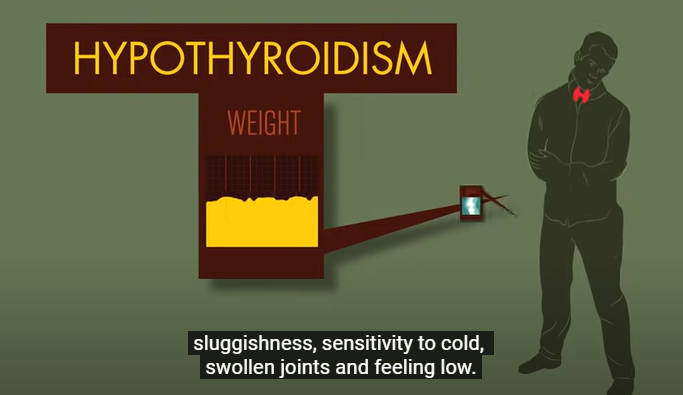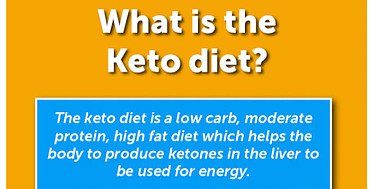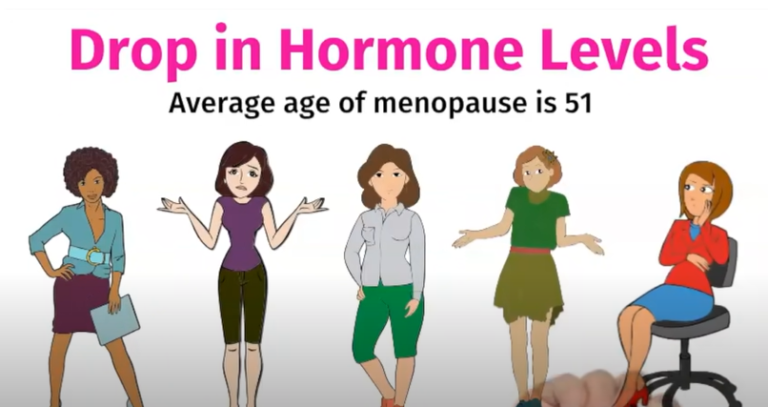Hormonal Imbalances And Weight Gain – The Total Connection
Hormonal imbalances and weight gain are closely intertwined issues that have been increasingly capturing the attention of medical researchers and nutritionists alike. The silent interplay of these hormonal disturbances significantly impacts body weight. These disturbances create a need for a well-rounded understanding of diet options. In turn, this helps alleviate these health concerns.
The human body functions like a finely tuned orchestra, with hormones playing the pivotal role of conductors. Any hormonal imbalances and weight gain in this harmonious concert lead to a multitude of health concerns, including weight gain. Let’s dissect this connection further.
The Role of Hormones in Body Weight Regulation
Hormones such as insulin, leptin, ghrelin, cortisol, and sex hormones are integral in controlling appetite, metabolism, and fat distribution. For instance, insulin regulates glucose absorption, influencing whether we burn or store fat. Any disturbance in their equilibrium leads to weight gain or difficulty losing weight.
Hormonal Imbalance and Its Impact on Weight
Research reveals that hormonal imbalances are the hidden culprits behind unexplained weight gain. For example, conditions like Polycystic Ovarian Syndrome (PCOS) and hypothyroidism, characterized by hormonal disturbances, often have weight gain as a critical symptom.
Diet and Hormonal Balance – The Link
Food is much more than just fuel for our bodies; it’s a powerful mediator of our hormonal health. What, when, and how much we eat can significantly influence our hormonal balance.
The Impact of Nutrition on Hormonal Balance
A study published in the ‘Journal of Clinical Endocrinology and Metabolism states that diets rich in fiber, low in saturated fats, and balanced in macronutrients help maintain hormonal homeostasis. On the other hand, a lack of these nutrients disturbs hormonal balance, leading to potential weight gain.
Addressing Hormonal Imbalance Through Diet
Food acts as our medicine, and rightly so, especially when dealing with hormonal imbalances. Understanding that no single ‘miracle’ food corrects these imbalances is crucial. Instead, a combination of nutrient-dense, varied foods helped restore and maintain hormonal harmony.
Dietary Options for Hormonal Imbalance and Weight Gain Issues
Considering the critical role diet plays in managing hormonal imbalances and weight gain, here are some dietary options you could incorporate into your routine.
Fiber-Rich Foods
Foods high in fiber, such as fruits, vegetables, whole grains, and legumes, are highly beneficial. A study published in ‘Nutrition Research’ found a link between high-fiber diets and lower levels of circulating estrogen levels. This hormone is often associated with weight gain when imbalanced.
Healthy Fats
Fats are essential for hormone production. Incorporating sources of healthy fats, like avocados, nuts, seeds, and fatty fish, supports hormonal balance. Research in the ‘American Journal of Clinical Nutrition’ linked the Mediterranean diet, rich in healthy fats, with improved hormonal health and weight management.
Lean Proteins
Lean proteins, such as poultry, fish, eggs, and plant-based proteins, help keep you satiated, stabilize blood sugar, and support hormone synthesis. A 2015 study in ‘The American Journal of Clinical Nutrition’ found protein-rich diets improve body composition and metabolic health.
Complex Carbohydrates
Unlike simple carbs, complex carbohydrates are broken down slowly, maintaining steady blood sugar and insulin levels. Foods like quinoa, brown rice, oats, and sweet potatoes are excellent choices.
Micronutrient-Rich Foods
Micronutrients like magnesium, zinc, and vitamin D play a crucial role in hormone production and balance. Incorporating a variety of fruits, vegetables, nuts, seeds, and lean meats ensures adequate intake of these essential nutrients.
Hormonal Imbalance and Weight Management
Addressing hormonal imbalance and weight management requires a multi-dimensional approach that goes beyond caloric restriction. The Hormone Diet, devised by Dr. Natasha Turner, a naturopathic doctor, proposes an integrative method to reset hormones. The benefits include all of the following:
- Manage weight through diet
- Exercise (walking)
- Nutritional Supplementation
- Detoxification.
This diet has garnered much attention, but is there any scientific grounding to this program? This section provides an in-depth analysis of The Hormone Diet.
The Hormone Diet
The Hormone Diet is a 6-week, three-step process targeting hormone fluctuations that might adversely affect a person’s weight. It considers other factors contributing to weight gain and chronic diseases as well.
Claiming to be the first diet book emphasizing the importance of hormonal balance, it suggests lifestyle modifications like proper sleep, stress management, mindful eating, and regular exercise to boost hormones that burn fat. Weight loss goals within the initial phase are set at up to 12 pounds, including water weight, followed by about 2 pounds per week without calorie counting.
The protocol purportedly aids in optimizing inflammation levels and hormones such as acetylcholine, cortisol, dehydroepiandrosterone (DHEA), dopamine, estrogen, gamma amino-butyric acid (GABA), growth hormone, insulin, melatonin, progesterone, serotonin, testosterone, and thyroid hormone.
Exploring the Phases of The Hormone Diet
Phase 1: This phase involves a 2-week “detoxification” process. It restricts the consumption of gluten-containing grains, cow’s milk dairy products, many oils, alcohol, caffeine, peanuts, sugar, artificial sweeteners, red meat, and citrus fruits.
The diet permits naturally gluten-free grains and starches, most vegetables, most fruits, beans, other nuts and seeds, poultry, fish, soy, eggs, plant milk, dairy from sheep or goats, and certain oils. Nutritional supplements such as probiotics and anti-inflammatory products like turmeric and fish oil are also recommended.
Phase 2: In this phase, you reintroduce certain foods while keeping an eye on your body’s reactions. However, “hormone-hindering” foods like high fructose corn syrup, fish with high mercury levels, non-organic meats, non-organic coffee, raisins, dates, peanuts, processed foods, artificial sweeteners, and refined grains continue to be avoided. The author describes this approach as a “Glyci-Med” approach, combining elements of a glycemic index and a Mediterranean diet.
Phase 3: The third phase emphasizes holistic physical and mental wellness through cardiovascular exercise and strength training. The diet plan from the second phase continues into this phase, allowing some leniency for non-adherent foods while maintaining at least 80% adherence to Hormone Diet-approved choices.
The Effectiveness of The Hormone Diet for Weight Loss
The diet has not been the subject of any formal scientific research, but plausible assumptions suggest it could lead to significant weight loss. Losing weight is more likely if you prioritize complete, unprocessed foods while avoiding the highly processed foods that are linked to obesity, insulin resistance, and hormonal dysfunction. High consumption of processed foods and added sugars on a regular basis is associated with insulin resistance and increased body fat.
Additional Potential Benefits of The Hormone Diet
The Hormone Diet takes a more all-encompassing stance on weight loss and general wellness. It’s a comprehensive hormone balance and weight loss plan that prioritizes mental wellness, stress management, sufficient sleep, and regular exercise. These holistic approaches have the potential to reduce stress-induced cortisol, a hormone linked to belly obesity.
Founder, Rachele
(w) mybluegenes.com







